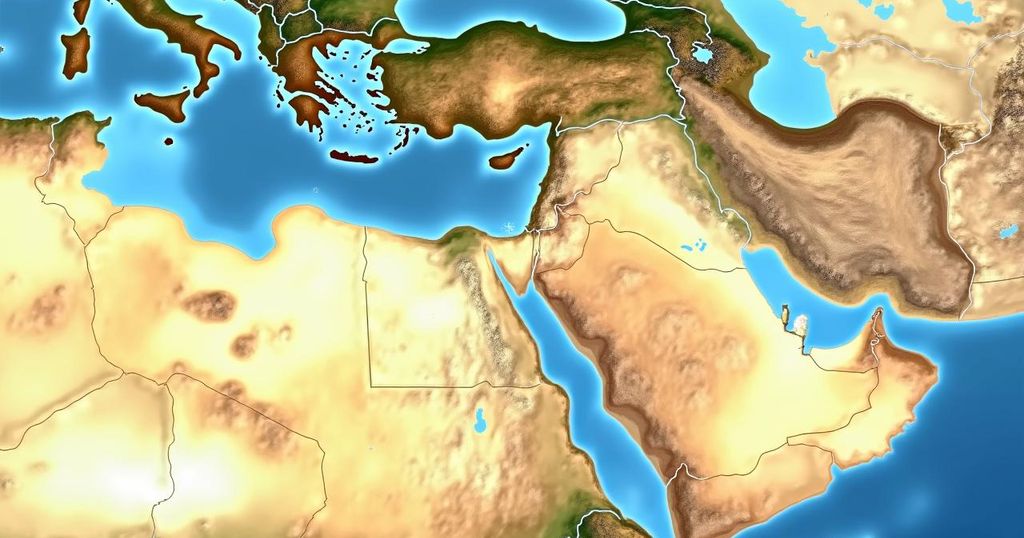Bezalel Smotrich, the Israeli Finance Minister, has proposed an expansion of Israel’s borders into neighboring Arab countries, including Jordan, Lebanon, Egypt, Syria, Iraq, and Saudi Arabia. His comments reflect deeper ultra-nationalist sentiments prevailing within parts of Israeli society and highlight the growing influence of far-right figures in the Israeli government, particularly during ongoing conflicts in the region. The situation underscores significant societal divisions and challenges facing the region as a result of these territorial ambitions.
In a recent interview for the Arte documentary titled ‘Israel: Extremists in Power,’ Bezalel Smotrich, Israel’s far-right Finance Minister, articulated his vision for a Jewish state that extends beyond current Israeli borders into several neighboring Arab territories. His statements reflect a desire for a significant territorial expansion that includes regions such as Jordan, Lebanon, Egypt, Syria, Iraq, and Saudi Arabia. Smotrich referenced Jewish scripture, noting, “It is written that the future of Jerusalem is to expand to Damascus.” This assertion echoes the long-held aspirations of many ultra-nationalist Israelis who seek to redefine the geopolitical landscape of the Middle East. The documentary sheds light on the influence of far-right politicians like Smotrich and Itamar Ben-Gvir in the current Israeli government, particularly in light of the ongoing conflict in Gaza. Moreover, it underscores the increasing polarization within Israeli society as these leaders gain prominence. It is noteworthy that Prime Minister Benjamin Netanyahu has sought support from these far-right factions, especially following the exit of former Defence Minister Benny Gantz from the emergency war cabinet amid disagreements regarding military strategies and the handling of captives held by Hamas.
The statements made by Minister Bezalel Smotrich must be understood in the context of a shifting political landscape in Israel. The rise of far-right factions within the Israeli government has coincided with heightened tensions in the region, particularly regarding the ongoing war in Gaza. Smotrich’s vision is rooted in a historical and religious narrative that seeks to justify the expansion of Israel’s territory into adjacent Arab nations. His remarks reflect a broader nationalistic sentiment prevalent among certain segments of Israeli society, which has increasingly influenced policy decisions and political discourse.
In summary, Bezalel Smotrich’s recent remarks about expanding Israel’s borders into neighboring Arab countries are indicative of a broader ultra-nationalist agenda that seeks to reshape regional dynamics. The influence of such far-right politicians is growing, contributing to significant divisions within Israeli society and further complicating the already tense relations between Israelis and Palestinians. As the Israeli government navigates these complex issues, the implications of these territorial aspirations may have far-reaching consequences for peace and stability in the Middle East.
Original Source: www.tehrantimes.com






